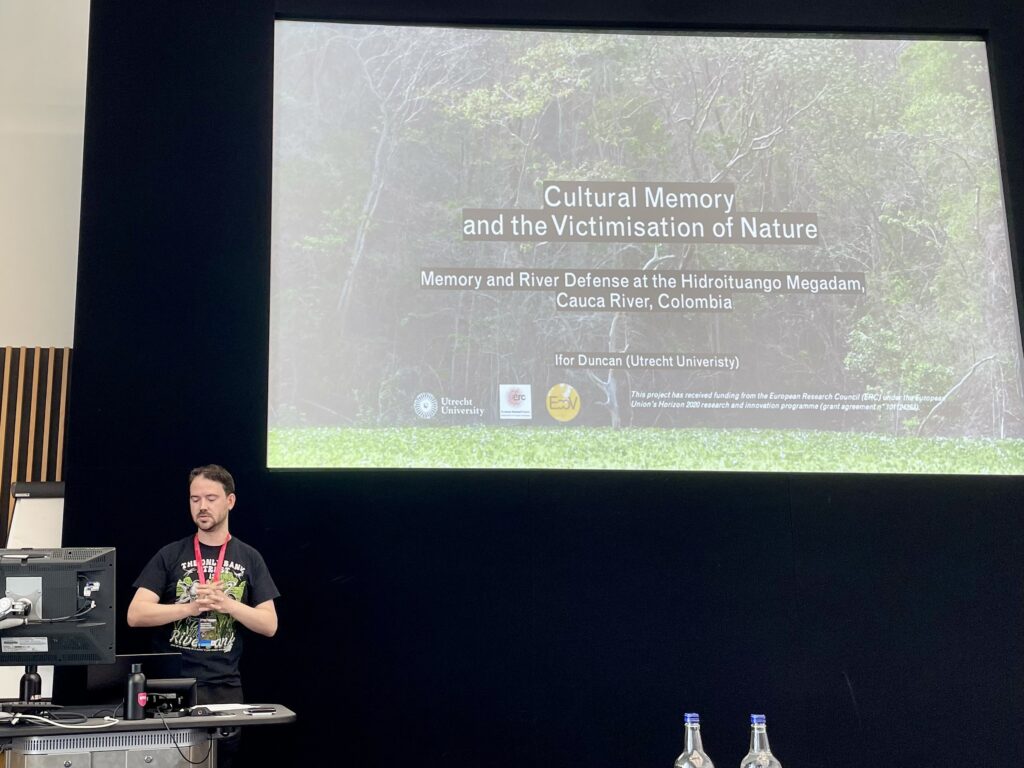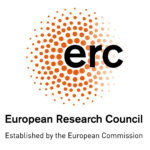Nieuws
EcoViolence at Memory Studies Conference in Nottingham
In the span of three days (5-7 June), Nottingham Trent University hosted the Conference Dynamics, Mediation, Mobilization – Future Directions in Memory Studies. On Saterday, our team presented a panel, entitled Mnemonic Ecologies of Violence, and it explored the entanglements of different histories, forms, and structures of violence against humans and nonhumans and how these are remembered and represented in different media of memory.
Speakers in the panel were: Susanne C. Knittel, Tom van Bunnik, Clara de Massol, King’s College London, and Ifor Duncan.
Key questions for the panel were: what role do aesthetic forms and media play in mnemonic ecologies of violence? What is the agency of the aesthetic when it comes to representing and remembering these ecologies? Foregrounding trans-disciplinary and practice-based approaches to theater performance, eco-poetics, and moving image, we will consider both the cultural mediation of ecologies of violence and how the environment itself is a dynamic mediator.
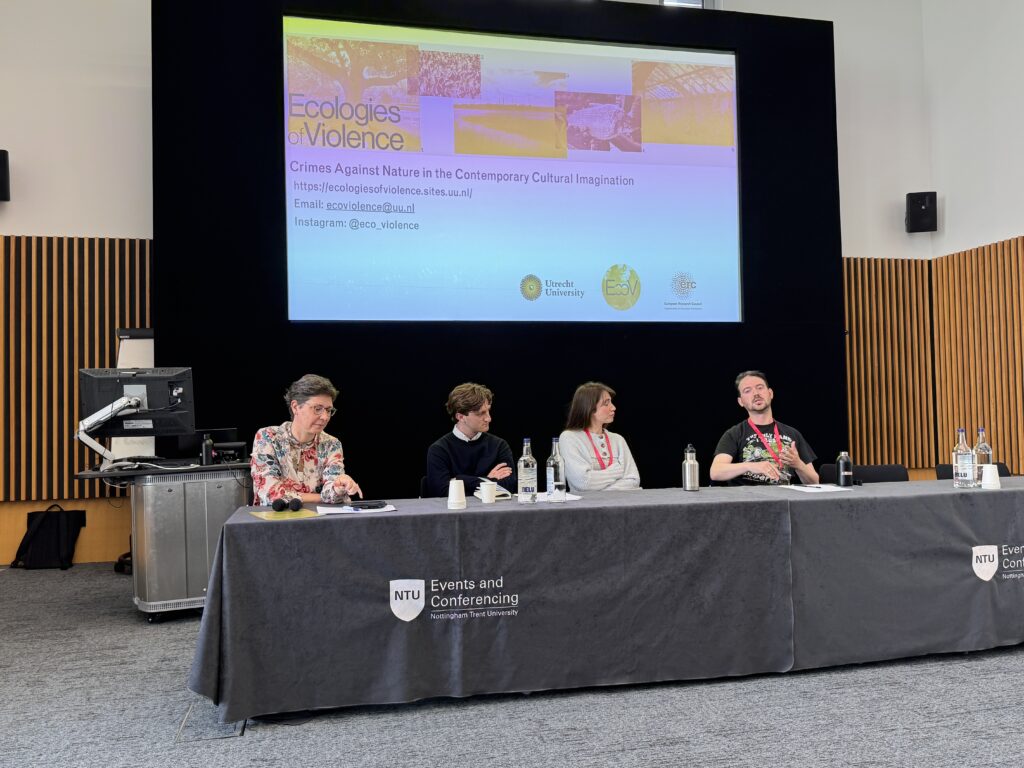
Susanne’s paper focused on tribunal theatre, a genre that has been part of the mnemonic repertoire of genocide and other atrocities, and that has seen a resurgence in the context of the ecocide discussion. Focusing on a tribunal performance she herself has been developing with a transdisciplinary team based at Utrecht University, she discussed how such a performance can give space to perspectives and voices usually excluded from the purview of the (Western) courtroom.
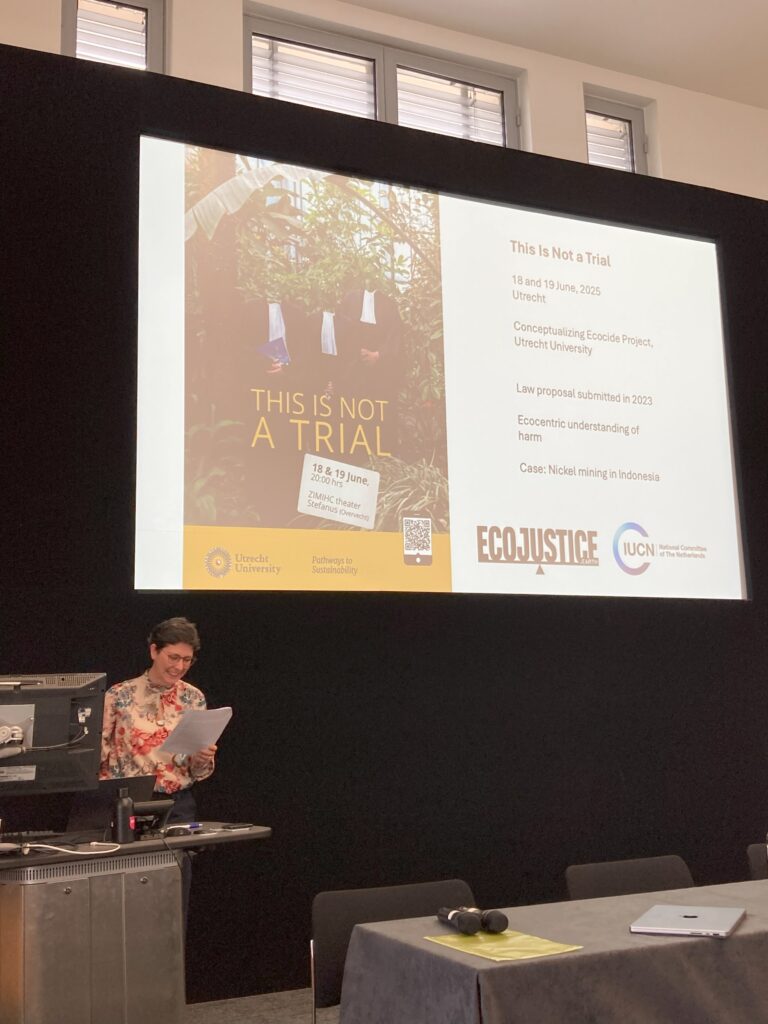
Tom considered how the ecopoetry of Juliana Spahr interrogates poetry’s capacity to bear witness to eco-violence. Tom’s talk explored some the aesthetic repertoires used by Spahr – specifically parataxis, lists, and catalogues – to expand ‘witnessing’ in terms of ecological relations. The paper proposes that Spahr’s ecopoetry engages in ‘ecopoetic witnessing’ – a testimonial process in poetry that expands who counts as witness to include the more-than-human, implicating the poem and its reader in bearing witness to these more-than-human testimonies. Ecopoetic witnessing, Tom suggested, may help us reimagine our notion of witnessing in an ecological sense, which may contribute to expanding our understanding of ‘memory’ on similar ecological terms
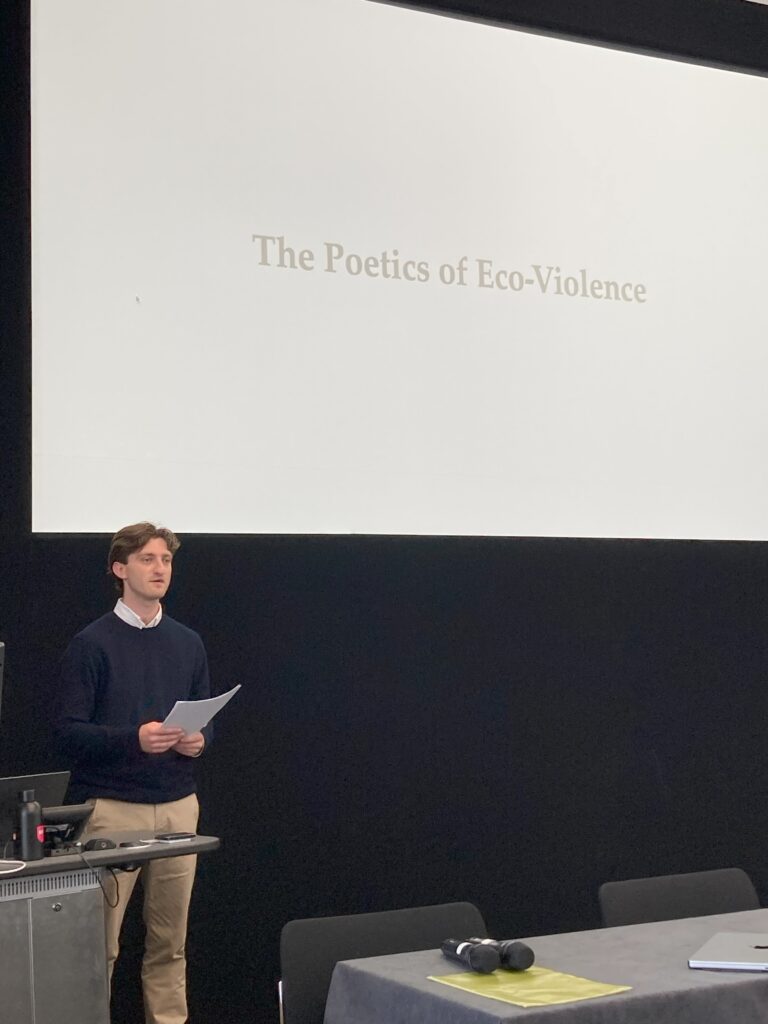
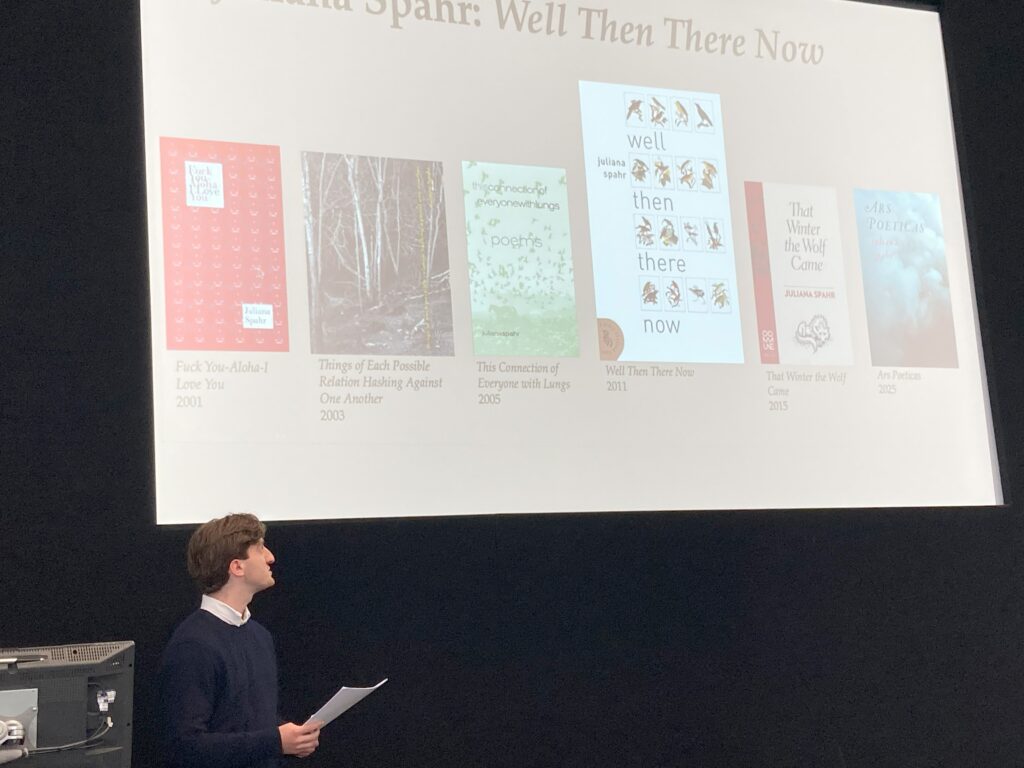
Clara’s presentation examined the film Grenfell by Steve McQueen (Serpentine Gallery, 2023), which commemorates the Grenfell Tower fire on June 14th, 2017, in West London. This catastrophe highlighted issues of neoliberalism and austerity and their entanglement with slow violence and toxic contamination. Clara’s talk explored questions of necropolitics, hauntology, and toxic geographies, considering how contemporary catastrophes are commemorated.
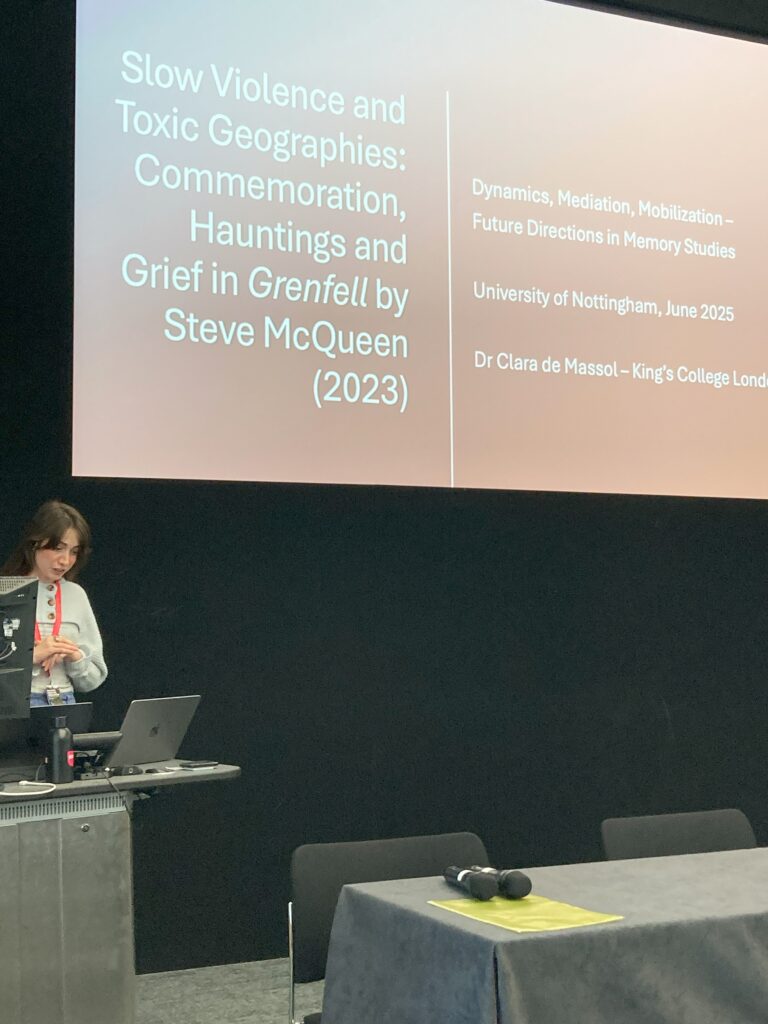
Ifor’s paper focused on the case of the Hidroituango Megadam on the Cauca River in Colombia and the resistance practices of Movimiento Rios Vivos in their challenge to displacement, the transformation of the canyon ecosystem, and the legacies of historic and ongoing forms of political violence. The Cauca was made a subject of rights in 2019, and in 2024 the river was declared a victim of historic political violence. The paper explored the implications of this ruling of river victimhood for cultural memory and the struggle for multi-species justice.
